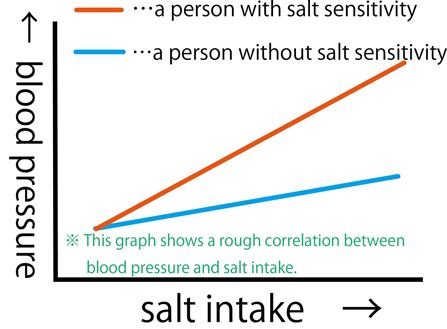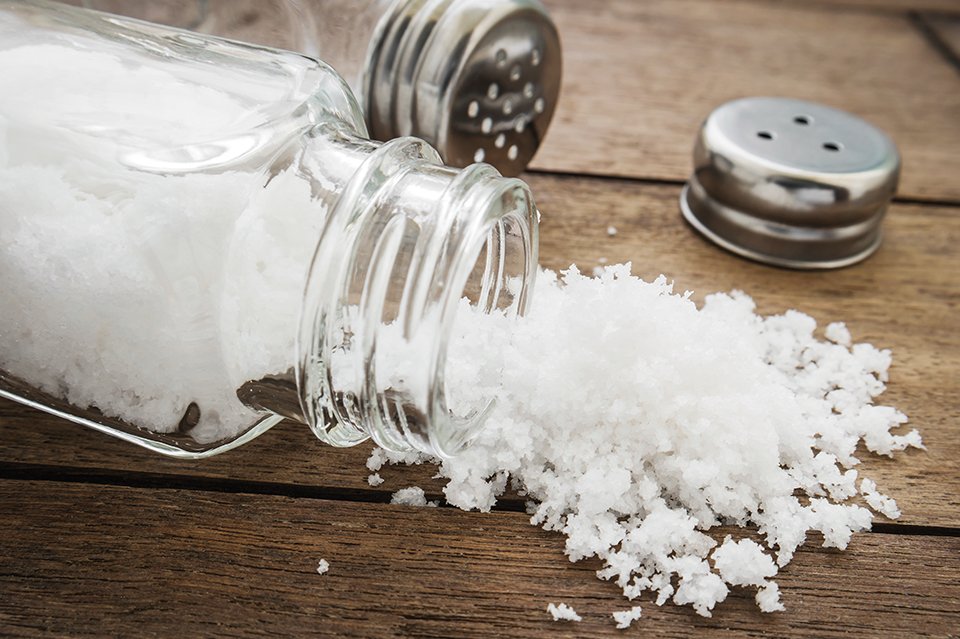Why Do You Believe What you Believe?
Disclaimer
(This is a rant, feel free to skip to the sodium part down below)
Let me start off by asking anyone who’s reading this a question. Why do you believe what you do about nutritional topics like sugar, artificial sweeteners, sodium, and saturated fat? Feel free to leave your answer in the comments section. I ask because I’ve been noticing plenty of incorrect information out there that people just eat up and agree with. I’m not trying to say that I know everything, or that you should only read what I write, in fact that’s the opposite of what I’m trying to say. People should take what they read with a grain of salt (no pun intended) unless there’s significant research backing what the author is saying. It’s always best to do your own research and come to your own conclusions. I want you to actually learn, not regurgitate what you've heard. This is why I’ve started trying to link all of my research in posts. That way you don’t need to blindly take my word for it. Be wary of anyone telling you how things affect your body without peer-reviewed journal articles or meta-analysis to back them up. They most likely conducted a google search you could have done yourself. Don’t be someone who believes things because they read an article that one time or watched one youtube video that other time. Alright, my rant is over let’s talk about sodium.
Finally, Let's talk about sodium
My goal today is to go over what’s true and what’s not about what people commonly think about sodium, as well as educate you on a newer way of thinking when it comes to how sodium affects your body.
Salt is essential for our bodies to survive
Salt tends to be one of those things people vilify, but in reality we need salt to live. Sodium is essential for things like...
Muscle Contraction
Fluid Balance
Blood Volume
Nerve Function
Sodium plays an important role in numerous pumps and mechanisms in our body. We couldn’t contract our muscles, regulate our blood pressure, or even use our brains without it.
Now those seem pretty damn important to me, but I know what you’re thinking
Sodium will increase my blood pressure and KILL MEEEEE!!!
Welllllll, it actually turns out that it’s not quite that simple.
Sodium Sensitivity
It turns out there are genetic factors that come into play when it comes to sodium’s effect on blood pressure and cardiovascular disease. The old way of thinking is that eating too much sodium will always increase my blood pressure, but more recent science has come out saying that the links between sodium and blood pressure are a little weaker than we previously thought and they can vary greatly based on one’s Salt Sensitivity
So what is salt sensitivity?
Salt Sensitivity is defined by one review of current research as
“a variety of genetic and environmental factors that have been identified that modulate the effects of dietary sodium on cardiovascular disease events and survival, as well as blood pressure. These include diet quality, age, body mass and race/ethnicity.”

Essentially there are tons of factors that determine how sodium will affect your risk for higher blood pressure and cardiovascular disease. It is very important to keep that in mind before religously preaching off of the mountains about how terrible sodium is for you and, how it’s going to kill all the americans who over consume it. Now don’t get me wrong here I am not saying that everyone should go out and forget about how much salt they are consuming. I am saying that there is more than meets the eye here, that most people fail to realize. Unfortunately, as it stands now there is no reliable testing available to the everyday person to determine their level of salt sensitivity, however, these tests are being developed.
This graph does a good job making the whole idea pretty easy to understand

Conclusion
Salt is not evil
Eating salty food is okay
Eating too much salt here and there is perfectly fine
Not worrying about your salt intake for the most part is usually alright (excluding extreme salt consumption)
Unless
You are at risk for high blood pressure and are most likely at risk for cardiovascular disease. This would most likely mean you are indeed salt sensitive.
Research/Further Reading
https://www.ncbi.nlm.nih.gov/pmc/articles/PMC3724405/
http://www.ncpa.org/pdfs/Salt-Sensitivity-a-Determinant-of-Blood-Pressure.pdf
http://healthyeating.sfgate.com/roles-sodium-2999.html

